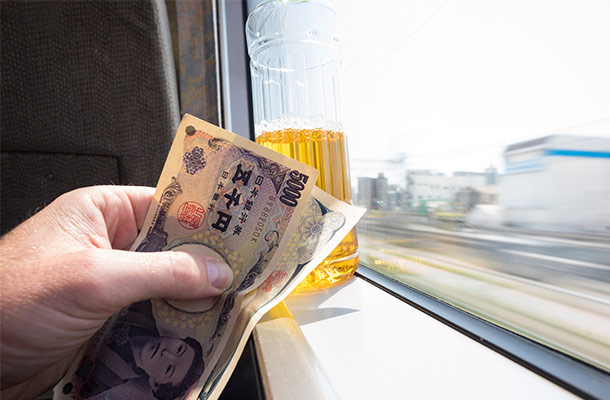Money in Japan: What to Know Before You Travel
Should you take cash or cards? What about ATMs? Avoid being caught out with no cash or access to money on your trip to Japan – check out these tips before you go.
 Photo © iStock
Photo © iStock
Enjoy your time in Japan without worrying about cash or bank fees and remember these handy tips.
- Cash or cards in Japan?
- Alternatives to cash
- Using debit cards in Japan
- Using credit cards in Japan
- Travel money cards
- ATMs in Japan
Cash or cards in Japan?
Though use of credit cards and e-currency has increased in recent years, Japan is still largely a cash-based society.
The national currency of Japan is the Japanese Yen (¥). It's best to get some cash converted before you leave home so you have change handy to catch the train to your destination once you arrive. Otherwise, you can access cash exchange places at the airport.
Also keep in mind that while credit and travel money cards are accepted by larger hotels and department stores in Japan, many places (including small shops and restaurants) will still only accept cash, especially in smaller cities and towns.
Make sure you plan ahead so that you will have enough money on you for the day.
Alternatives to cash
Though you will certainly need some cash, carrying wads of money, which could easily be stolen, lost, or just spent too quickly, is not ideal.
There are three main options when it comes to cards in Japan – credit cards, debit cards, or travel money cards. Having at least one on you is essential for ease of access to your money.
Using debit cards in Japan
While debit cards are not widely accepted over the counter in Japan, a debit card can be useful for getting cash from an ATM. Keep in mind using a debit card issued in your home country will likely involve withdrawal fees, international ATM fees and, depending on your bank, you might get a bad conversion rate.
Using credit cards in Japan
Visa, Mastercard, JBC, and UnionPay are the most widely accepted credit cards, and many places in large cities like Tokyo also accept American Express. You can also use credit cards to buy tickets for Japan Railway (shinkansen and Narita Express), though not always for short train rides or subway rides.
Credit cards can be a good option as some providers might offer perks like no transaction or currency conversion fees, frequent flyer, reward points, and even emergency card replacements.
On the downside, they may also come with high interest rates, and you may be hit with expensive cash advance and withdrawal fees.
Planning a trip to Japan? Find out how travel insurance can help in case of unexpected illness, lost or stolen baggage, or other travel mishaps.
Travel money cards
Travel money cards are another option. These are handy as you can load Japanese Yen onto your card before you go, and transfer money electronically from other accounts while you are in Japan. Most also come with emergency back-up cards. Some prepaid cards let you lock in an exchange rate, while others use the current rate of exchange at the time of the transaction. Be aware that if you're transferring money onto your travel money card, it may take a few days. You may also be charged (sometimes hefty) fees for transactions or withdrawals.
ATMs in Japan
In Japan's larger cities, it has become easier to find ATMs where you can use a major non-Japanese credit or debit card, but they can still be hard to find in rural areas or small towns. Your best options are postal ATMs, located at post offices around the country, or 7-Eleven convenience stores, which typically have international-friendly 7-Bank ATMs inside and are available 24 hours a day. Be aware that you may be charged international withdrawal fees from your bank at home.
Related articles
Simple and flexible travel insurance
You can buy at home or while traveling, and claim online from anywhere in the world. With 150+ adventure activities covered and 24/7 emergency assistance.
Get a quote

No Comments